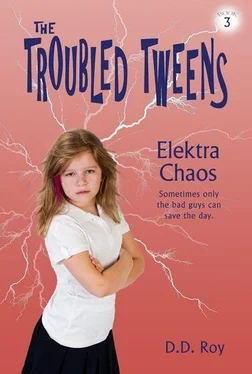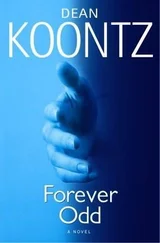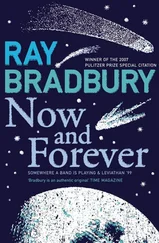She was still asleep, her brows drawn together like she was dreaming fitfully, or in some pain. The tea needed to cool a bit, so I could let her sleep.
If there was ever a day that could change your life, this one was it.
Tina waited for us by the doors to the lab. “We’re actually going to move to one of the meeting rooms,” she said. “There’s some legal stuff involved here, so I asked one of the social workers to come along.”
I glanced at Gavin, to see if he also registered that this meant Tina knew what the results were.
Tina caught the look. “I haven’t peeked. I don’t know anything. So don’t try and read the results in my expression. Besides, I’ve got the poker face of a hard-core gambler.”
“I bet you do,” Gavin said.
“I could lie about your mother and you’d buy it,” she said.
“I believe that too,” he said.
Tina leaned against the wall. “Rosa’s not here yet. We’ll just wait.” She’d skipped the pigtails today, her blond hair sleek on her head. She looked like one of those waif models you might find in a magazine, tiny and strangely dressed, her yellow eye shadow almost otherworldly.
Today her striped stockings were green and blue, two shades so matched in tone that they almost blended together. I decided staring at them was easier than looking anywhere else.
Gavin took my hand. He’d been attentive all day, fussing over tea and then breakfast. We’d met my parents for lunch and then driven them to the airport. I could not have been more relieved to see them go, but the meal had gone easily enough. No arguments. No awkward talk. Gavin and my father hadn’t exactly come to any understandings, but at least they could tolerate being in the same room.
“She’s here,” Tina said, looking behind us.
Gavin turned around first, and I watched his face to see if it revealed anything about what he was feeling. He put on a grim smile and said, “Glad you made it.”
I forced myself to face her as well. She was alone today, wearing the same teal coat, this time with a gray sweater and jeans, much less dressy than yesterday. She seemed calmer too, far more than I felt myself.
“Manuelito is with my cousin,” she said. “I decide he should not come.”
Tina pushed away from the wall. “Probably a good choice. Let the adults work this out.” She pulled out her phone and tapped out a message. “Just letting the social worker know we’re heading her direction.”
We all walked together, Tina leading, Gavin and I behind her, and Rosa alone at the end. I lost track of the corridors we snaked through, through an administrative office, then into a small room tucked away from the bustle of the medical side of the hospital.
Another woman waited there, thankfully not Sabrina and her cat’s-eye glasses, but a grandmotherly one, an official-looking folder on the oval conference table in front of her. I could not take my eyes off it, knowing my future rested in those pages. All of ours did.
Gavin, Rosa, and I took the three vacant seats, and Tina stood against the wall near the door.
“Hello, I’m Abigail Jennings. I work in family services here,” the woman said. She reached for a pair of reading glasses hanging on a gold chain and put them on. Her silver hair was coiffed and elegant, much like my own mother’s, and this helped me calm down a little. She had undoubtedly seen pretty much everything that could happen. We were not going to be anything outside her norm.
She opened the folder, and all our eyes went to it, hoping for our first glance at the answer, the big question coming to a close. But the print was small and light, numbers cascading down the page in a table.
“We are an AABB-accredited lab that provides results with an accuracy level that meets requirements for the courts as well as immigration agencies.” She tugged out the top sheet of paper. “When we have a case that includes a child whose parentage might involve issues of custody across international borders, we have to dot a few more i ’s and cross a few more t ’s.”
She turned the page around. “Our test looks for sixteen genetic matches. In this column,” she pointed to the first segment of the table, “we have the child’s genetic markers.” She tapped the next column. “Here are the alleged father’s.” Her fingers trailed down the numbers in the rows.
I could already see the tally at the bottom: 99.9%. But I wasn’t sure which way it went. It talked about exclusions.
“Sometimes our combined index falls into a gray area, depending on the mutations in the markers, but in this case, the conclusion was sufficient to satisfy both a court and the embassies.” She looked up. “It proves without a doubt that the child and the father are related.”
Rosa let out a breath, her hands flat on the table. Gavin’s jaw was tight, the muscle twitching, his Adam’s apple bobbing as he tried to swallow.
I couldn’t think, the words still hanging in the air like laundry on a line. I blinked, working to believe it, trying to let them penetrate.
Gavin reached for the page and moved it toward him, staring at the numbers. I felt Tina’s presence behind me, her hands on my shoulders like she had done the day before, in the lab.
Then everything came at me at once, like I’d just broken the surface of the ocean, gasping for breath, my chest heaving. I wasn’t crying or making any sound, just sucking in air.
“Breathe, Corabelle, breathe in,” Tina said.
Gavin turned to me, his hand on my back. “It’s okay, baby. We’re going to be all right. We’ll figure this out.”
“She just got discharged yesterday,” Tina said to the social worker. “She’s had pneumonia.”
“Should I call someone in?” Abigail asked.
“She’ll be okay,” Tina said. “Let’s give her a moment.”
I listened to all this impassively, as if they were talking about someone else. All I could see was Gavin as a child, his expressions, his impish grin, the swirl of his hair over his ears. I realized I had seen it all along in Rosa’s son, and I had known, but was unwilling to acknowledge it.
“That’s better,” Tina said. “Keep breathing. Take it slow.”
The room came back to me, Gavin, leaning in, pulling me to him. He shouldn’t do that, not in front of Rosa. She loved him, she was the mother of his child, his living child, not the dead one, not the one that was not meant to be his.
I pushed away from him, standing up, suddenly wishing I was still in the hospital, a room to go to, a place to shut the door and not have to rely on anyone to take me home. “I need a moment,” I said. “Tina?”
“I’m right here.” She wrapped her arm along my shoulders and I realized what a friend she had become, someone I had scarcely known only a few days ago. I did not know how I would have gotten through this without her.
“Corabelle, please don’t walk away,” Gavin said. “I’m not going anywhere. I love you.”
Rosa stood up too. “I am not here to take Gavin. That is not what I want.”
“Later,” I said. “Later. Let me think about this.”
But Gavin was unrelenting. “If you’re leaving, I’m leaving too.”
“We can work out the papers some other time,” Abigail said. “There is no rush here.”
I walked toward the door, Tina beside me. “Let’s go to the art room,” she said. “We’ll clear your head.”
Gavin tried to follow, jerking the door wide. “I am not letting you go, Corabelle.”
I whirled around. “I may not give you that choice.”
“Okay, let’s go,” Tina said. “Gavin, go figure out your forms. You have some obligations now. Straighten all that out. Give Corabelle some time.”
Читать дальше












